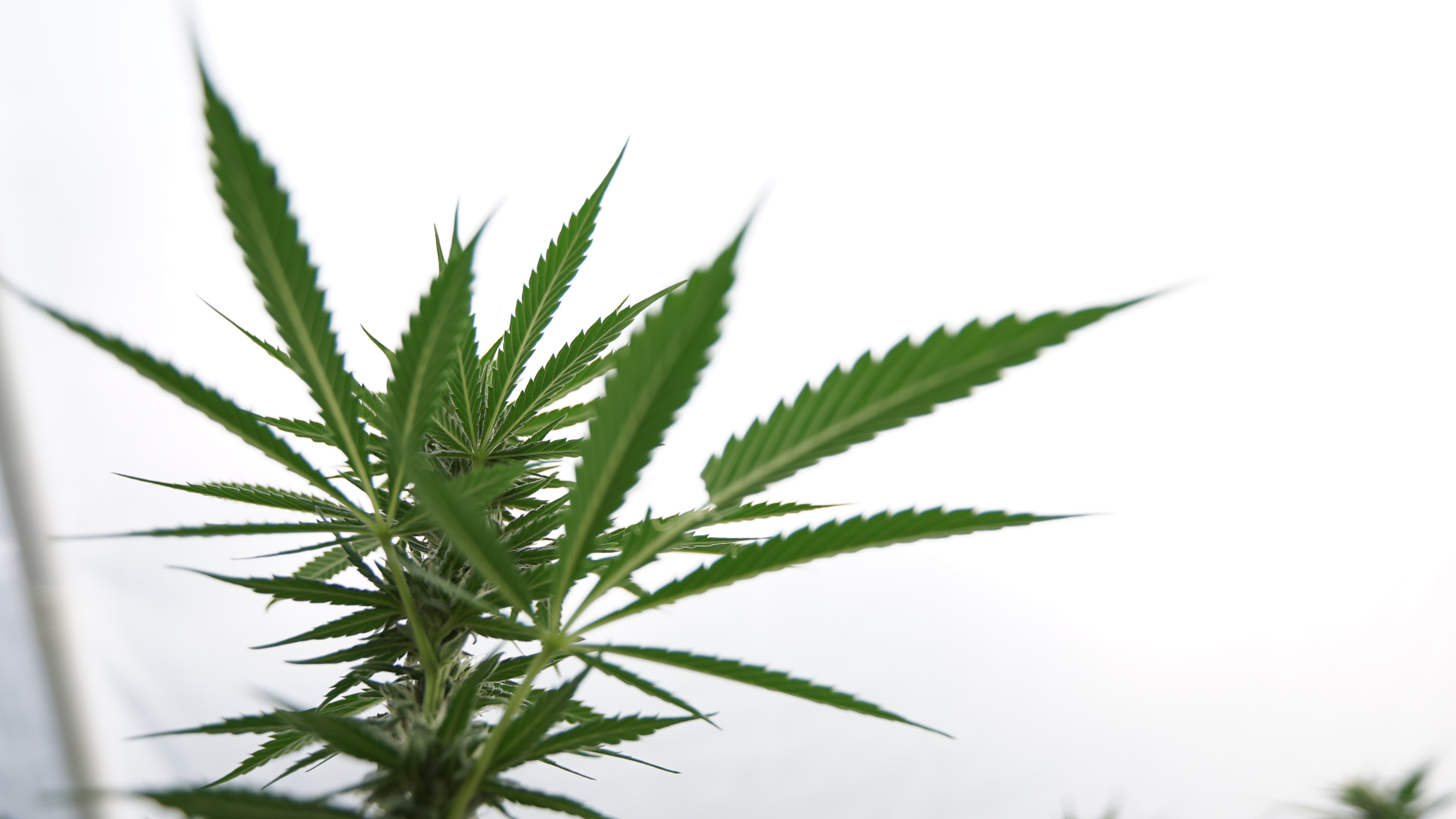- Baked In
- Posts
- 🌿 Hemp: The Bell Tolls for Thee
🌿 Hemp: The Bell Tolls for Thee
GM Everyone,
#StandForSchedule3
💸 The Tape
If you felt a disturbance in the cannabis universe this week, you're not wrong. The U.S. Senate voted 76–24 to table Sen. Rand Paul’s amendment that would have removed the now-infamous hemp ban language from the federal spending package. Translation: the chamber chose to keep provisions that would effectively recriminalize many hemp-derived THC products, including delta-8 and other intoxicating cannabinoids that have exploded in popularity in gas stations, vape shops, and your cousin’s wellness startup.
Rand Paul, who helped legalize hemp in 2018, took to the Senate floor like a farmer defending his crop from a surprise frost. His argument: the ban would “regulate the hemp industry to death” and wipe out farmers and manufacturers who built businesses under the very law Congress passed just six years ago. “It couldn’t come at a worse time for America’s farmers,” he warned.
But Senate leadership wasn’t buying it. Mitch McConnell—yes, the same Mitch McConnell who shepherded the original 2018 hemp legalization—argued that companies have abused a “loophole” to sell intoxicating products outside proper regulatory structures. His position: protect the hemp fiber market, kill the gas-station gummies.
Supporters of the ban say it’s about public safety, pointing to unregulated products marketed with cartoons and candy branding (if you’ve been inside a convenience store lately, you get it). Opponents say the ban is so broad it goes way beyond delta-8, threatening CBD, full-spectrum extracts, hemp beverages, and entire supply chains. One hemp operator described the .4 mg total-THC cap per product as “industry-ending,” claiming it would make every full-spectrum CBD product illegal overnight.
Meanwhile, the alcohol lobby has entered the chat—loudly. A coalition representing the spirits, beer, and wine sectors urged Congress to maintain the ban, arguing that intoxicating hemp beverages are cutting into their market. Funny how the “public health” argument always seems to align perfectly with “protecting beverage sales.”
And yes—the White House has now said President Trump supports the ban language, at least as currently written, even as he continues to endorse rescheduling cannabis.
So where does this leave us? The spending package now moves to the House. The government is still in shutdown limbo. Hemp businesses are in full panic-lobby mode. The alcohol industry is smiling quietly in the corner.
In other words: Welcome to cannabis policy season. Buckle up.
📈 Dog Walkers
$AAWH ( ▼ 15.25% ) Reports Choppy Q3
Ascend Wellness Holdings (AWH) reported its Q3 2025 earnings, and while revenue didn’t exactly light up the scoreboard, the company continued sharpening its operating discipline, ramping product innovation, and executing on a market densification strategy that remains the center of its growth thesis.
Total net revenue came in at $124.7 million, down slightly from $127.3 million in Q2. Retail revenue slipped 3% sequentially to $83.8 million—reflecting the broader pricing environments in Illinois and Massachusetts, otherwise known as “competitive.” Wholesale, however, held its ground, rising just enough (+0.3%) to allow management to confidently use the phrase “sequential improvement” in the release.
But the real wins were below the top line. Adjusted gross profit climbed to $57.8 million, up from $55.3 million last quarter. Adjusted EBITDA hit $31.1 million, an 8.9% sequential increase, bringing margins up 250 basis points to 24.9%. Translation: the company is squeezing more juice out of every gummy, cartridge, and pre-roll it sells.
Speaking of SKUs—AWH is in full CPG innovation mode. Year-to-date, the company has launched 420 new SKUs (yes, really), with a target of nearly 550 by year-end. Effin’ vapes and gummies, High Wired infused flower, and new Ozone Reserve and Simply Herb pre-rolls all made their way into shelves across Illinois, Massachusetts, New Jersey, and Ohio—helping refresh the portfolio and keep the brand conversation moving forward.
On the retail footprint side, Ascend is pushing deeper into key markets. With 46 operational dispensaries (including partners) and another 13 in the pipeline, AWH reiterated its goal of 60 locations within the next 12 months, pending the usual game of regulatory hopscotch. A highlight: approval for the company’s first partner dispensary in New Jersey, as part of the state’s program to support diverse-owned cannabis businesses.
Financially, the balance sheet remains workable. Cash sits at $87.3 million, while net debt stands at $281.8 million—lightened slightly by a $9.3 million mortgage financing in Ohio at a competitive 8.5% and continued share buybacks. In total, AWH has repurchased ~15 million shares at an average of $0.30 since Q4 2024, signaling conviction—or at least a belief that the market has been overly dramatic.
Call it steady. Call it disciplined. Call it SKU-happy. Ascend is clearly committed to refining margins now while laying runway for the next leg of expansion. The real question heading into 2026: can that topline momentum catch up?
$CBSTF ( ▼ 6.36% ) Is Rightsizing
What’s Going On Here: The Cannabist Company reported Q3 2025 earnings this week, and the story continues to be one of strategic contraction, cost discipline, and market-by-market repositioning, as the company works to stabilize margins and shore up liquidity in a still-choppy pricing environment.
Revenue came in at $79.9 million, down 7.5% from Q2 and down significantly from $114.8 million a year ago. Part of that decline is by design. The company sold three dispensaries in Pennsylvania during the quarter for roughly $10 million in cash, and has shifted to a wholesale-only model in the state while reserving optionality for a future adult-use transition. That strategic trade-off trimmed top-line retail revenue but helped the balance sheet.
Adjusted gross margin landed at 32%, down slightly from 33% in Q2. Management pointed to ongoing price compression and intentional inventory reduction efforts on the wholesale side—essentially clearing the shelves now to operate more efficiently later. Meanwhile, retail margins improved sequentially thanks to tighter discounting discipline.
Adjusted EBITDA was $3.0 million, down from $8.5 million last quarter, showing that while cost control is improving at the store level, the company is still working through the effects of operational rightsizing.
One financial highlight: the company did end the quarter with $17.8 million in cash, up from $15.5 million in Q2—rare positive movement in an environment where many operators are burning liquidity to stay upright.
The theme of footprint optimization continued after the quarter closed. On November 10, The Cannabist completed the sale of its remaining Florida cultivation facility for $11 million in cash, with another potential $1 million kicker if Florida ever joins the adult-use party. With the move, the company has effectively exited Florida, freeing capital and organizational bandwidth to prioritize stronger performing regions.
Operationally, the start of adult-use sales in Delaware on August 1 provided a welcome spark, as did continued build-out in Ohio—where the company now operates seven stores, with one more on the way. New brand partnerships are also rolling out, including expanded COAST edibles in New Jersey and the launch of Queen Mary’s in Colorado.
The takeaway? Cannabist is still mid-rebuild. The portfolio is getting leaner, the balance sheet is getting lighter, and the company is trimming down to the markets where it believes it can actually win. The next few quarters will show whether that focus translates into a return to scale—or simply a more intentionally sized business built to survive the current cycle.
🗞️ The News
📺 YouTube
Congress Quietly Moves to Ban Hemp | TTB Powered by Dutchie
What we will cover:
✅ What happens if Congress actually bans hemp nationwide?
TDR Trade To Black Podcast, presented by Dutchie, breaks down the new federal language buried inside the FY2026 government funding bill that would outlaw all consumable hemp products containing any “quantifiable amount of THC.” That means Delta-8, Delta-10, THC-P, and even full-spectrum CBD could all disappear with one vote.
Host Shadd Dales and Anthony Varrell are joined by Brady Cobb, one of the sharpest policy minds in cannabis, and Michael Bronstein, President of the American Trade Association for Cannabis and Hemp. Together, they dig into who’s really behind this move—and what it could mean for hemp brands, investors, and everyday consumers.
In this episode: • Who’s pushing the hemp ban through Congress • Why this mirrors the failed Mary Miller Amendment • What “quantifiable THC” actually means for hemp products • How state markets and CBD brands could get hit • Whether the DEA or White House will step in next
The FY2026 hemp provision could reshape how THC products are regulated across the country. Lawmakers say it’s meant to close loopholes from the 2018 Farm Bill, while industry groups warn it could wipe out an entire market overnight.

